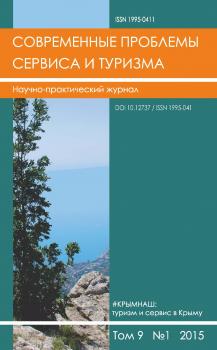Penza, Russian Federation
Currently, many states face the threat to lose the national identity, and all progressive mankind should be worried about it. Therefore, the issues related to the preservation of cultural heritage today are quite topical. This primarily applies to intangible cultural heritage, which includes such elements as oral traditions, performing arts, ritual and game culture, methods and technology, in other words the certain cultural spaces. Russia also pays a lot of attention to the identification and preservation of the national intangible cultural heritage. If only two objects are included in the List of UNESCO intangible cultural heritage, so the similar lists of objects of federal importance comprise about a hundred. It’s only the beginning. This article examines the cultural space that is worthy to be included in the List of intangible cultural heritage of humanity. It is based on the culture of the East Slavic tribe of Vyatichi, who settled in the VIII–XII centuries the South-Eastern part of present-day Central Federal District. During the later centuries, this cultural space was developed by the residents of Moscow, Ryazan, Kaluga, Tula, Orel and other Russian provinces (oblasts). To date, cultural space, formed by the descendants of the Vyatichi, represents a unique tourism product that has a sufficiently high attractiveness. The article also discusses the possibility of the implementation of this tourism product in certain entities of the Russian Federation
intangible cultural heritage, cultural space, the tourism development in the Central Federal District, a tourism product formation, Vyatichi
1. Golubev A. Dedicated to 655 anniversary of Kashira. Essay 3. Land of Vyatichi - «The Locked Down Country». 2011. URL: http://andreygolybev.livejournal.com/12306.html (Accessed on January 07, 2016). (In Russ.).
2. Klimova T.B., Vishnevskaya E.V., Stenyushkina S.G. Event as a unique tool of tourism development (experience of Belgorod region). Sovremennye problemy servisa i turizma [Service and Tourism: Current Challenges], 2015, Vol.9, No.3, pp. 105-112. DOI:https://doi.org/10.12737/12889. (In Russ.).
3. Komarova M.E. Ethnographic culture as a regional tourism resource (experience of Belgorod region). Sovre- mennye problemy servisa i turizma [Service and Tourism: Current Challenges], 2015, Vol.9, No.4, pp. 79-87. DOI:https://doi.org/10.12737/14535. (In Russ.).
4. Kharitonova T.V., Vapnyarskaya O.I., Golikova O.M. Russia competitiveness evaluation as a common tourist desti- nation (based on foreign methods). Servis v Rossii i za rubezhom [Services in Russia and Abroad], 2014, No.6 (53), pp. 119-139. (In Russ.).
5. Tsapuk D. A. Investment and interregional projects of tourism development in the regions of Central Federal District. Sovremennye problemy servisa i turizma [Service and Tourism: Current Challenges], 2015, vol.9, No.3, pp. 36-42. DOI:https://doi.org/10.12737/12880. (In Russ.).
6. Sakharchuk E.S., Kharitonova T.V., Krivosheeva T.M., Ilkevich S.V. The Study of the Present State and Prospects of Cultural Tourism in the Russian Federation (exemplifying Moscow region). World Applied Sciences Journal, 2013, No.27, pp. 309-314.





